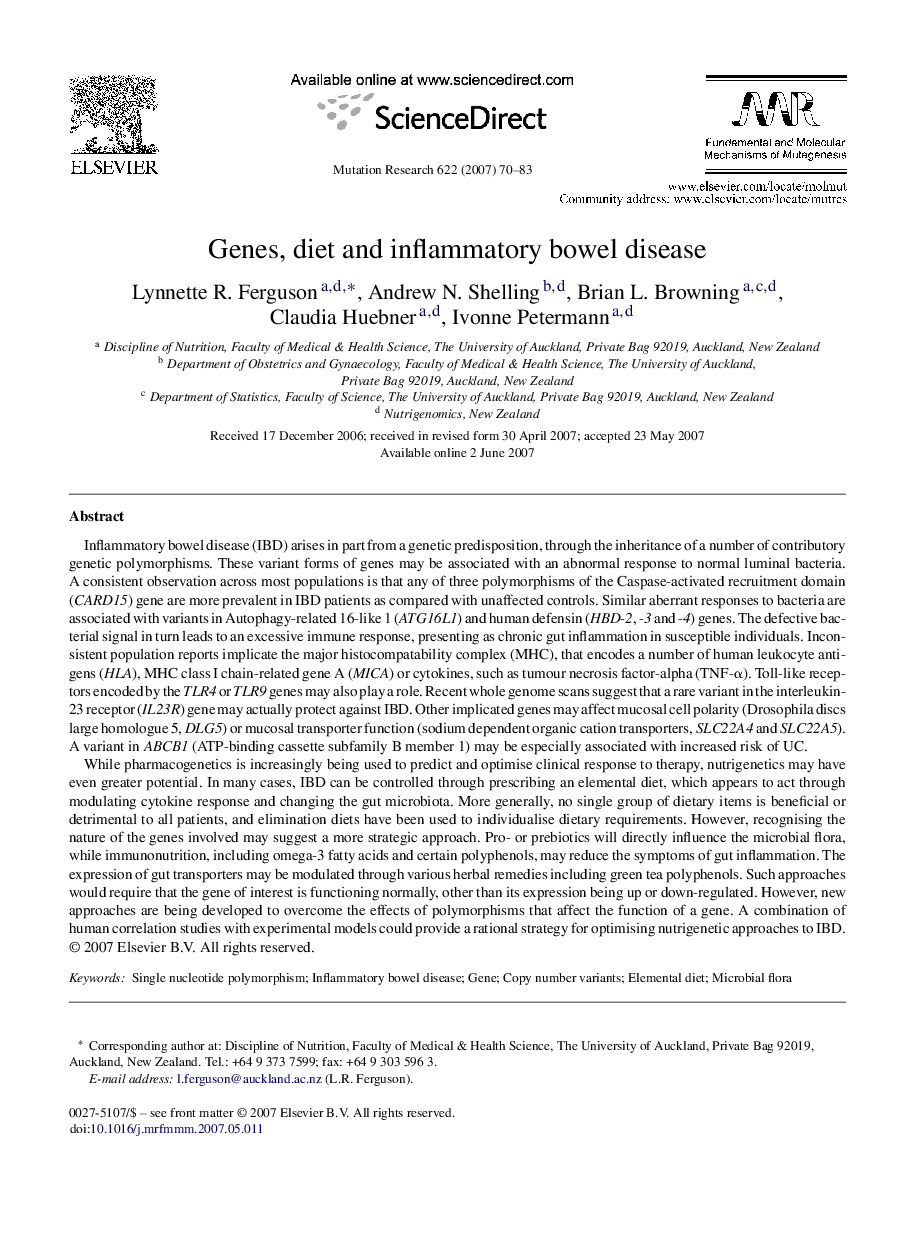| Article ID | Journal | Published Year | Pages | File Type |
|---|---|---|---|---|
| 2147342 | Mutation Research/Fundamental and Molecular Mechanisms of Mutagenesis | 2007 | 14 Pages |
Abstract
While pharmacogenetics is increasingly being used to predict and optimise clinical response to therapy, nutrigenetics may have even greater potential. In many cases, IBD can be controlled through prescribing an elemental diet, which appears to act through modulating cytokine response and changing the gut microbiota. More generally, no single group of dietary items is beneficial or detrimental to all patients, and elimination diets have been used to individualise dietary requirements. However, recognising the nature of the genes involved may suggest a more strategic approach. Pro- or prebiotics will directly influence the microbial flora, while immunonutrition, including omega-3 fatty acids and certain polyphenols, may reduce the symptoms of gut inflammation. The expression of gut transporters may be modulated through various herbal remedies including green tea polyphenols. Such approaches would require that the gene of interest is functioning normally, other than its expression being up or down-regulated. However, new approaches are being developed to overcome the effects of polymorphisms that affect the function of a gene. A combination of human correlation studies with experimental models could provide a rational strategy for optimising nutrigenetic approaches to IBD.
Keywords
Related Topics
Life Sciences
Biochemistry, Genetics and Molecular Biology
Cancer Research
Authors
Lynnette R. Ferguson, Andrew N. Shelling, Brian L. Browning, Claudia Huebner, Ivonne Petermann,
